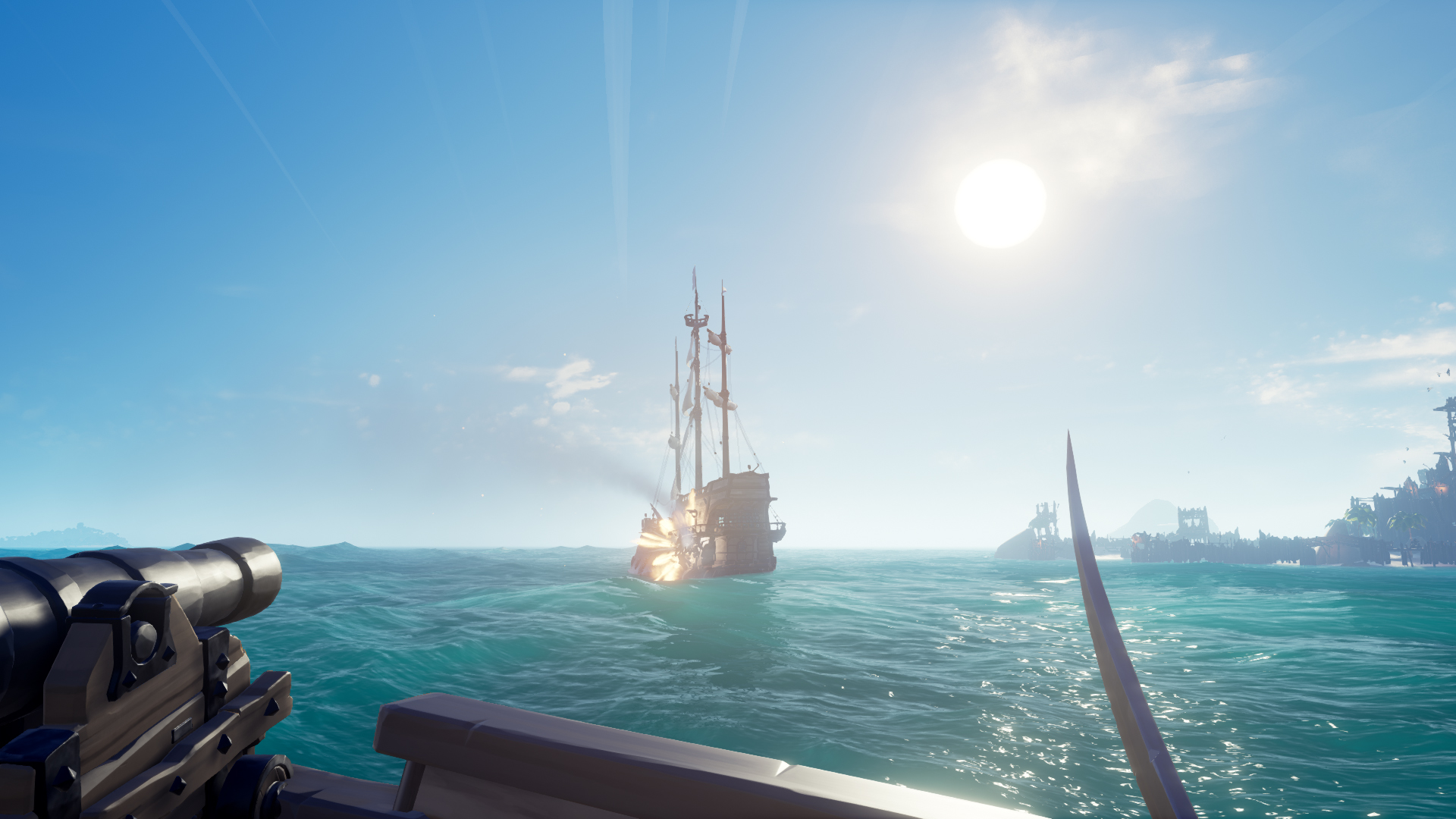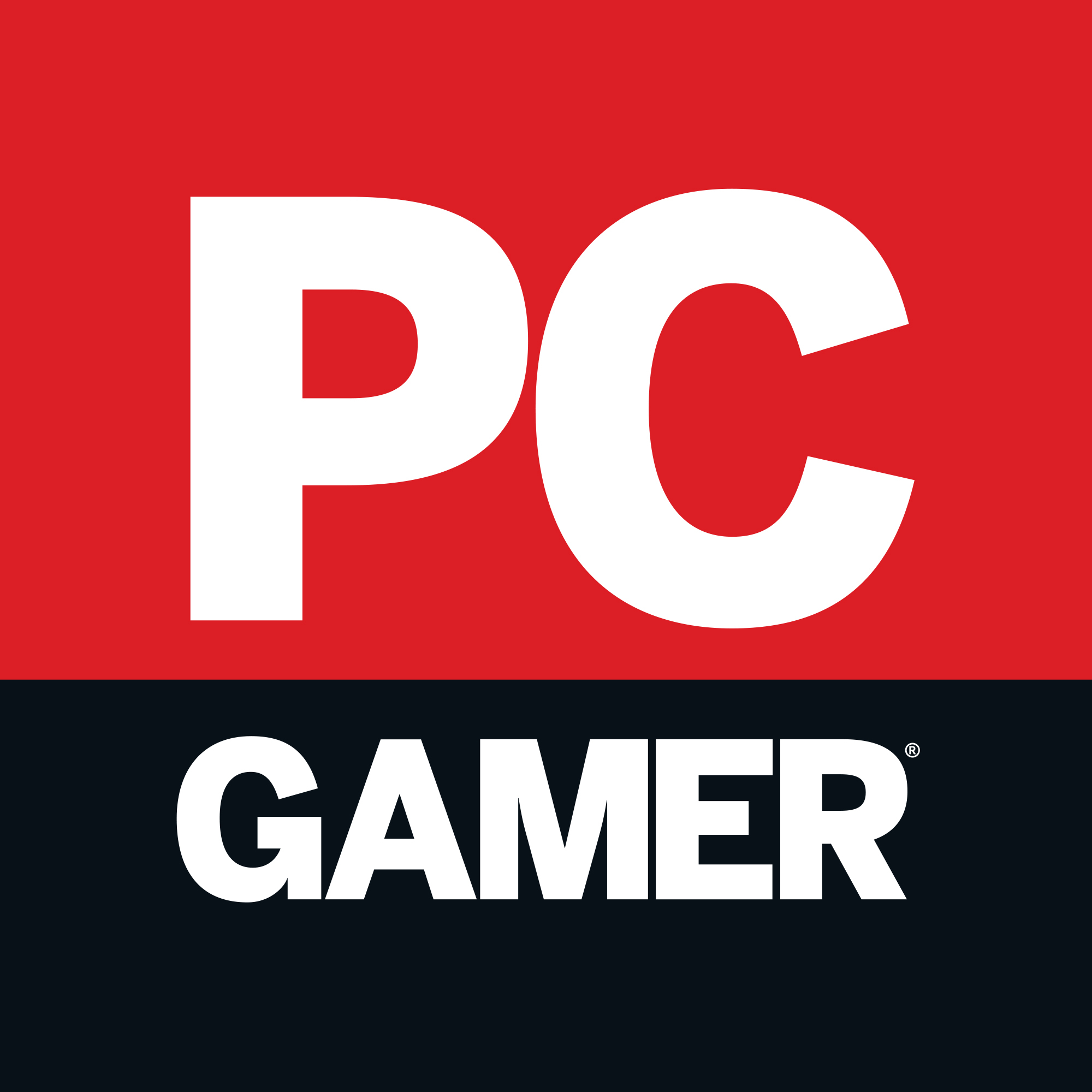THE HIGHS

James Davenport: A new hope
Obsidian is announcing a new RPG at The Game Awards next week. As someone that never jived with the drab fantasy of Pillars of Eternity, the teaser images for this new thing are doing it for me, especially in the wake of Fallout 76’s disastrous launch. It’s not going to be a new Fallout game, but it sure gives me Fallout vibes. The near-confirmation that Tim Cain and Leonard Boyarski, vets from the first two Fallout games, are working on this new thing has me particularly hopeful that the retrofuturist RPG-shaped hole in my heart will soon be filled. I guess we’ll find out soon enough.
Tom Senior: Light Club
I used to think that RGB lighting was a needless, superficial addition to a battlestation but… oh wait I still think that. Then why did I buy a Razer keyboard, mouse and glowing Razer mousemat this week? It must have been a combination of Cyber Monday madness and poor impulse control. Either way my desk can now glow softly to the hue of a billion colours it can flash and strobe to every key press, or ripple its way through the rainbow.
Has it improved my Battlefield K/D? Absolutely not, but I’m sort of in love with it. I’ve moved away from some of the more garish settings and settled on a golden glow to match this nice Deus Ex wallpaper to give my whole setup a futuristic transhuman aura. What have I become?
Fraser Brown: Attack of the Pixels
I got myself a new PC last month, but I only got around to picking out a new monitor this week. It’s big, it has many pixels and it’s fine. It has had a dramatic impact on my games, though. I’ve been stuck in a 1080p universe for too long and gosh have I been missing out. I’ve spent days just downloading games so I can gawk and gasp before moving onto the next one. The one bit of eye candy I’ve stuck around to play is, surprisingly, Star Wars Battlefront 2, which recently got an update with a new map and Obi-Wan Kenobi. The map is Geonosis and it is much, much better than the entirety of Attack of the Clones.
Keep up to date with the most important stories and the best deals, as picked by the PC Gamer team.
Battlefront 2 is a stupefyingly pretty game, only made more distracting by the new monitor, while Geonosis, despite being shrouded in a sandstorm, is simultaneously stunning and bleak. It’s a rocky wasteland of destroyed ships and ground vehicles, with imposing Geonosian domes looming in the distance. If you look up, you can even see the Geonosians themselves, flitting around in the sky. The march of the Republic walkers is pretty similar to Hoth and other battles, but the topography of the map makes a lot of difference, as does the fact that there are ten weaker walkers instead of the indomitable pair of AT-ATs. I’ve only played a few rounds, so I’m still just enjoying that new map smell, but I’ve thoroughly enjoyed being relentlessly shot.
Pip: The 100 Club
Because of the way publishing works, November was the last month of the PC Gamer magazine “Play 100 games in one year” challenge. I was hovering around the low nineties as we headed into the final week so I put out a call on Twitter for small, cool projects I might have missed. Within one afternoon I’d dragged myself over the finish line, and within about three days I’d built up a slush fund of games I could put towards a new challenge!
I think my favourite part of the challenge was that it really did push me to play a bit differently. I started to dig games out of my backlog which I’ve been meaning to get around to, and I finally picked up and played others which I’ve heard about but had held off buying because I wasn’t sure I’d get round to fitting them in. Particular joys were Opus Magnum, a 2D mechanical puzzle game from Zachtronics with an alchemical storyline, and Emily Is Away, the story of a relationship which plays out via an instant messenger window.
You can read about how everyone else on the mag’s challenge went in the next issue. And if you’re curious about taking the challenge on yourself in 2019, here’s where you can download the tracker page!

Chris Livingston: Sea change
After weeks spent playing Fallout 76 it was a complete and utter joy to dive back into Sea of Thieves last night. Rare's open world pirate game is already beautiful but it was a shock to my system to suddenly be back inside a bright, colorful, dazzlingly lovely world again after so much time in the muted post-apocalypse of West Virginia. In between carrying off huge scores of treasure and having a drunken concert in the pub (complete with barfing), we were attacked by a Megalodon and a Kraken and crashed our ship into more than one island. The rest of the time I spent just gazing at the waves and sunsets. It was great fun, completely relaxing, and a nice change of pace. Sandy beaches and cool blue waves were a treat for my eyes after so much grim, post-nuke scenery.
Tyler Wilde: In control
Last week I mentioned that I'd be buying a cheap Logitech controller, one that I used to use before losing it between moves. I did, and it's here, and I've been playing Rocket League with it all week. And guess what? My hands hurt. The outcropping that houses the bumpers rubs against the knuckle of my left middle finger, and the bumpers themselves require too much force to hold down. But guess what else? It might just be in my head, but I feel like I'm playing better. I seem to miss my jumps less, never mashing the A button instead of tapping it twice when I want to, and the analog stick feels easier to control.
It really probably is in my head: most pro Rocket League players use an Xbox One controller, which is what I was using previously, and I guarantee that none of them use a Logitech F310. I learned to play Rocket League with it, though, so that's probably why it feels better to me even after all this time. But no matter. What's great about the PC is that we can all choose what works best for us, whether that's a $15 hunk of cheap input device that doesn't actually make you play better, or an expensive Xbox Elite Controller that also doesn't make you play better.
The collective PC Gamer editorial team worked together to write this article. PC Gamer is the global authority on PC games—starting in 1993 with the magazine, and then in 2010 with this website you're currently reading. We have writers across the US, UK and Australia, who you can read about here.


